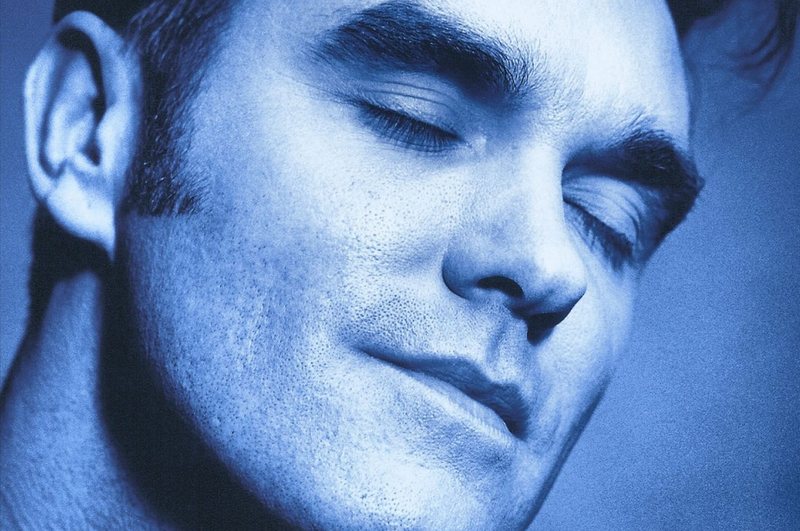
Congratulations! You’ve reached the first milestone in Autobiography, page 145, where we find our hero in a cliffhanger ending. The plot so far, a la TV Guide:
Steven Patrick Morrissey is an unhappy youth from gritty Manchester who loves only poetry, glam rock and television. He is indifferent about winning many medals in track and field. Increasingly caught up in the city’s music scene, Steven prepares to meet someone who will change his life.
Wow! That sounds exciting. In real-time, however, the book has its ups and downs. Here are my impressions of the memoir so far.
Manchester in the 1960s sounds like the seventh circle of hell.
Morrissey reserves special venom for the city’s school system, “where sadness is habit-forming, and where shame is cattle-prodded into kids who are in pursuit of bliss amid the unrelenting disapproval.” (p. 11) Mancunians, please weigh in: “Cattle-prodding” is just a metaphor, right? Right? Whenever I read a line about Morrissey’s tough and lonely childhood, I kept thinking that I’d heard it before.
This is, essentially, a condensed version -- and one of my favorite Smiths songs:
However, Morrissey does reveal some early happiness in a couple of sections -- and they form some of the best, most readable parts of the memoir so far.
Television is God.
I wrote about his nostalgia for television of the 1960s, especially kids programming produced in the United Kingdom and Europe. I hadn’t heard of many of these shows, and it sparked an afternoon of YouTubing that was truly entertaining.
If television is God, then rock music is Jesus.
We learn how important T. Rex, David Bowie, the Sex Pistols, Nico and the New York Dolls were key to his musical development. Not a surprise, really, but Morrissey’s heavily ornamented and decorative prose really hits a groove here. On meeting David Bowie, from page 65:
I crawl from the cultureless world to Stretford Hardrock in September 1972, where David Bowie is showcasing the venue. At mid-day, he emerges from a black Mercedes, every inch the eighth dimension, teetering on high heels, with all the wisdom of our ancestors. Smiling keenly, he accepts the note of a dull schoolboy whose overblown soul is more ablaze than the school blazer he wears, and thus I touch the hand of this inexplicably liberating reformer; he, a Wildean visionary about to re-mold England, and I, a spectacle of suffering in a blue school uniform.
(I’m sure Morrissey didn’t intend to cast himself, David Bowie and Oscar Wilde in a sort of holy trinity. Totally positive.)
Above, I called these the “readable” sections of the book, because other stretches contain Moz in such an elemental, concentrated form that it is too toxic for human consumption. Certain WNYC colleagues (who shall remain anonymous) have confided to me that they’ve fallen off the pace or put down the book entirely.
You might be feeling the same way. This is perfectly okay. To you, I say this: Come to the mountaintop with me! The road may be rocky, but we’re just about to meet Johnny Marr and eventually they have to make Meat Is Murder.
What do you think of Autobiography? Share your impressions of the book so far below.
